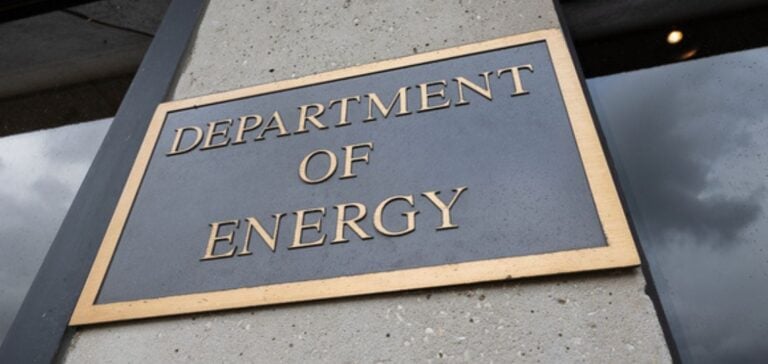The US Department of Energy (DOE) has announced a $2.7 billion investment to strengthen the country’s nuclear fuel supply chain. This investment is aimed at developing domestic uranium enrichment capacity, crucial to ensuring a reliable source of fuel for US nuclear reactors and reducing dependence on Russian imports. This initiative is part of President Biden’s “Investing in America” agenda, aimed at boosting domestic production and diversifying the nuclear fuel market. The DOE has issued a request for proposals for the purchase of low-enriched uranium from US sources. The aim is to create a competitive environment and guarantee a continuous supply of LEU for nuclear power plants.
Expanding national capacity
The investment involves the creation of new uranium enrichment facilities as well as capacity expansions at existing plants. This measure is designed to support the current fleet of US nuclear reactors and pave the way for future advanced nuclear technologies. Selected companies will have to demonstrate their ability to supply LEU in compliance with DOE’s safety and reliability requirements. The call for tenders also stipulates that proposals must include plans to generate local economic spin-offs and comply with strict environmental standards. DOE expects to award several contracts with a maximum duration of ten years. Proposals must be submitted by August 26, 2024 at 5:00 pm EDT.
Reducing dependence on imports
The decision to invest heavily in domestic LEU production is part of a broader strategy to reduce dependence on Russian nuclear fuel imports. In May 2024, President Biden signed the Prohibiting Russian Uranium Imports Act, banning the import of LEU from Russia. This measure is designed to strengthen the resilience of US supply chains and secure fuel supplies for the country’s nuclear reactors. This investment is a strategic step towards ensuring the competitiveness and safety of the US nuclear industry. By developing domestic enrichment capacity, the United States is strengthening its position in the global nuclear market and ensuring greater autonomy for its future energy needs.
Implications for U.S. companies
For companies operating in the nuclear sector, this initiative opens up new opportunities. LEU producers and nuclear reactor operators will benefit from a more stable and potentially more economical supply, reducing the risks associated with international market fluctuations. In addition, investment in domestic LEU production can stimulate technological innovation and research in the field of uranium enrichment, offering growth and development prospects for the entire US nuclear industry.
The DOE’s $2.7 billion investment in the nuclear fuel supply chain represents a significant step forward for the US nuclear industry. It aims to secure supply, reduce dependence on foreign imports and position the United States as a major player in the global nuclear market.





















